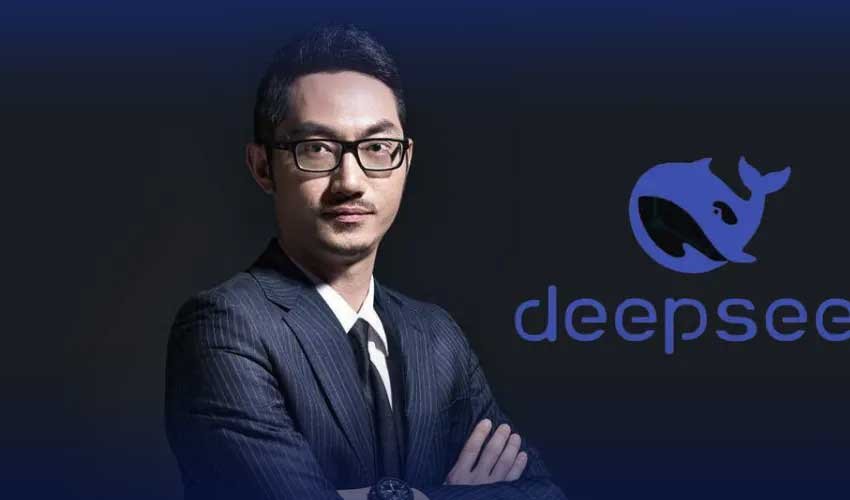Who is Liang Wenfeng?
The 39-year-old founder of Chinese AI startup DeepSeek, Liang Wenfeng, has quickly risen to fame and become the face of China’s tech industry and its hope of overcoming an ever-tightening noose of export controls imposed by America.
Liang was not known and remained silent until Jan. 20, when he was one of nine individuals chosen to deliver a speech at a closed-door symposium hosted by China’s Premier Li Qiang.
He gave two rare media interviews to Chinese media outlet Waves last year and in 2023, but apart from that, he has stayed mostly out of the public eye.
DeepSeek ignored a request for an interview.
At the symposium, the millennial’s youthful appearance contrasted with the grey-haired academics, officials, and state-owned conglomerate heads who sat around him, as pictures and video published by Chinese broadcaster CCTV showed.
But the fact Liang was invited to share his opinions on Chinese government policy highlights Beijing’s recognition of DeepSeek’s role in potentially upending the global AI order in China’s favour.
DeepSeek launched a free AI assistant last week that the firm says uses less data at a fraction of the cost of current services, triggering a global selloff in tech stocks.
Earlier last year, Baidu CEO Robin Li addressed a similar symposium chaired by the Chinese premier.
China’s first ChatGPT rival
Li, who announced China’s first ChatGPT rival in March 2023, said in an interview that same year that China would never recreate Microsoft-backed OpenAI’s success and that Chinese firms should focus on applying existing AI models for commercial purposes.
Under Liang’s leadership, DeepSeek deliberately avoided app-building.
Instead, it concentrated research talent and resources on creating a model that could match, or better OpenAI, and it hopes in the future to continue focusing on cutting-edge models that will be used by other companies to build consumer and enterprise-facing AI products.
Liang’s approach stood out in a Chinese tech industry that was used to taking innovations from abroad, from smartphone apps to electric vehicles, and quickly scaling them up, often much faster than the countries where the inventions were first made.
“China’s AI can’t be in the position of following forever. We often say that there is a gap of one or two years between China’s AI and the United States, but the real gap is the difference between originality and imitation,” Liang said in an interview with Waves in July last year.
Liang’s interviews reveal a belief that China’s tech industry had reached a crossroads where it lacked the confidence but not the capital needed to engage in fundamental R&D breakthroughs.
